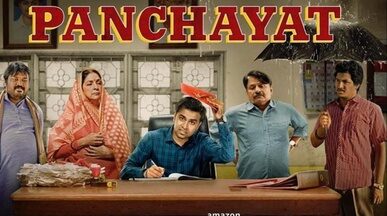The Calcutta High Court has denied a plea seeking to impose a stay on animal sacrifice during the Kali Puja festivities, affirming that the matter rests in the realm of religious practices. The court articulated that the debate over whether mythical characters like goddess Kali were vegetarian or not does not warrant interference in age-old traditions tied to the festival.
Kali Puja, dedicated to the goddess Kali, is one of the most significant festivals in West Bengal, often marked by rituals that include the sacrifice of animals as a means of worship. This year, the festivities drew attention to the ongoing legal battle over animal sacrifices, with petitioners claiming that the practice should be banned as it contradicts modern ethical standards and animal rights principles.
The bench, headed by Justice Shampa Sarkar, emphasized the need for cultural sensitivity, stating that the beliefs surrounding Kali Puja must be respected as part of the state’s rich heritage. Justice Sarkar remarked, “It is a matter of faith for many. If we were to start questioning every tradition, it would lead to chaos in our cultural landscape.” The court’s ruling reinforces the notion that practices deemed controversial or outdated cannot be arbitrarily banned without substantial justification.
Legal experts have noted that this ruling reflects a broader trend in Indian jurisprudence where courts have tended to lean towards preserving traditional practices. In prior cases, the judiciary has often refrained from intervening in religious matters unless there is a clear violation of constitutional rights. The court’s ruling has garnered mixed reactions from various segments of society. Supporters of the traditional practice argue that it is an essential aspect of the worship process, while animal rights activists view the decision as a setback for ethical treatment of animals.
Activists have been vocal against the practice of animal sacrifice, arguing that it not only raises moral questions but also goes against the growing consciousness regarding animal welfare in society. Organizations such as PETA India have previously campaigned for a ban on animal sacrifices, advocating for alternative offerings that do not involve harm to animals. “The Calcutta High Court’s ruling dismisses the voices calling for compassion towards animals. We will continue our fight to educate the public about non-violent forms of worship,” stated a representative from PETA.
The cultural context of Kali Puja is significant, as it showcases the deep-rooted beliefs associated with goddess Kali. Historically, the festival involves elaborate rituals, including the offering of goats, which are believed to appease the goddess and bring blessings to devotees. However, changing societal values around animal rights have led to increasing scrutiny of such practices, putting them at the forefront of ethical debates.
As debates surrounding animal rights continue to gain traction across India, many believe the court’s decision could lead to further discussions about the future of animal sacrifice in religious practices. While some see the ruling as an endorsement of traditional practices, others view it as a missed opportunity to modernize and adapt cultural rituals in line with contemporary ethical standards.
In addition to legal considerations, the socio-political dynamics surrounding Kali Puja cannot be ignored. The festival attracts large crowds, often leading to increased tensions between traditionalists and reformists. Local community leaders have expressed concerns about potential unrest if the issue of animal sacrifice is politicized. “We need to find common ground where faith and compassion can coexist,” one community leader remarked, stressing the importance of dialogue in addressing the concerns raised by both sides.
The ongoing discourse regarding animal sacrifice at religious ceremonies also touches on broader questions about the intersection of faith, ethics, and law in contemporary India. As public sentiment shifts towards greater awareness of animal rights, the challenge remains for traditional practices to evolve without losing their cultural significance.



 Iran And Israel’s Love-Hate Relationship: From Shah To Ayatollahs
Iran And Israel’s Love-Hate Relationship: From Shah To Ayatollahs 